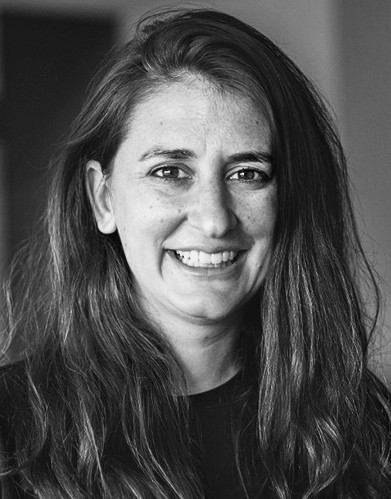Expert: Nation must improve patent diversity
By James Dean
Investments in programs designed to close the “patent gap” – helping more women, minority and low-income entrepreneurs patent and commercialize their inventions – would ignite economic growth, a Cornell expert told federal lawmakers Jan. 15.
Women make up just 12% of patent inventors and hold only 5.5% of commercialized patents, Andrea Ippolito ’06, M.Eng. ’07, told the U.S. House Committee on Small Business at a hearing titled “Enhancing Patent Diversity for America’s Innovators.”
Studies have found that at current rates, achieving gender parity could take nearly a century or more, noted Ippolito, a lecturer in the College of Engineering and the Cornell SC Johnson College of Business, and founder and director of Women Entrepreneurs Cornell (W.E. Cornell).
“This is not an acceptable status quo,” said Ippolito, one of four witnesses appearing before the committee. “We need to be bringing in more and diverse people into the innovation ecosystem.”
The benefits of doing so could be enormous: a quadrupling of the rate of innovation, according to a 2019 U.S. Patent and Trademark Office report, if women, minority and low-income inventors patented technology at the same rate as high-income white men.
Research shows patents are an important factor tied to job promotion, salary increases, attracting venture capital and job creation.
Although women are participating in STEM fields in greater numbers than ever – they comprise half of all undergraduate engineering students at Cornell – that has not translated into gains in filing for and obtaining patents, Ippolito said.
Over the past two years, Cornell has established two programs to help remedy that problem, W.E. Cornell and Black Entrepreneurs in Training (BET), supported by the Center for Regional Economic Advancement. They offer women and minority students exposure to the commercialization process and access to networking, mentoring and training.
Those opportunities are limited for underrepresented groups in technology – particularly, Ippolito said, in the fields that generate the most patents, electrical and mechanical engineering.
“Basically, it’s a vicious cycle,” she said. “A lack of women in these fields mean a lack of mentors, role models and sponsors for aspiring women inventors seeking guidance and resources to innovate.”
Cornell’s programs offer a model that universities and communities across the country could replicate to provide on-ramps for underrepresented groups, Ippolito said, serving as feeders into existing entrepreneurship programs such as the National Science Foundation’s Innovation Corps, or I-Corps.
“If you build it, you cannot just assume they will come,” Ippolito said. “Women need to be invited, encouraged, inspired, frankly, to be part of this movement so that we can have a better economy.”
Other obstacles, she said, are common to women across the workforce: gender discrimination, pay inequities and disproportionate child care burdens. Even in academia, where women seek patents at higher rates than in private industry, a 2011 study found those with children obtain fewer patents than men and women faculty without children or male academics with children.
The combined challenges can make the cost of patenting prohibitively high, Ippolito said.
She highlighted the example of Sarah Reyes, a mother of three young children who recently earned a doctoral degree in nutritional sciences from Cornell and is pursuing a utility patent for a countertop breast milk pasteurizer.
Reyes participated in W.E. Cornell and two other startup accelerator programs – the Cornell eLab accelerator and the Napkin-to-Prototype Hardware Accelerator at Rev: Ithaca Startup Works. She also received funding to research and refine her customer market through the I-Corps program.
Those programs connected Reyes to a patent attorney, and eLab awarded her a $5,000 stipend that will help offset the $4,000 to $8,000 cost of her patent application.
Without such support, Ippolito told the committee, “folks like Dr. Reyes will be limited even pursuing those patents … and we’re not going to see this increase.”
Ippolito offered the committee six policy recommendations, starting with a joint U.S. Patent and Trademark Office and Small Business Administration initiative funding on-ramp programs that focus on women and minorities.
Resources, she suggested, should be directed to sectors where women are pursuing patents, including universities, and to the most patent-intensive fields. The programs should integrate role models and provide support to reduce the cost of seeking patents.
“Let’s tackle this together,” Ippolito said, “to bring untapped talent into the innovation sphere and support more equitable and just economic prosperity across our nation.”
Read more about Ippolito’s testimony at the Center for Regional Advancement.
Media Contact
Get Cornell news delivered right to your inbox.
Subscribe

